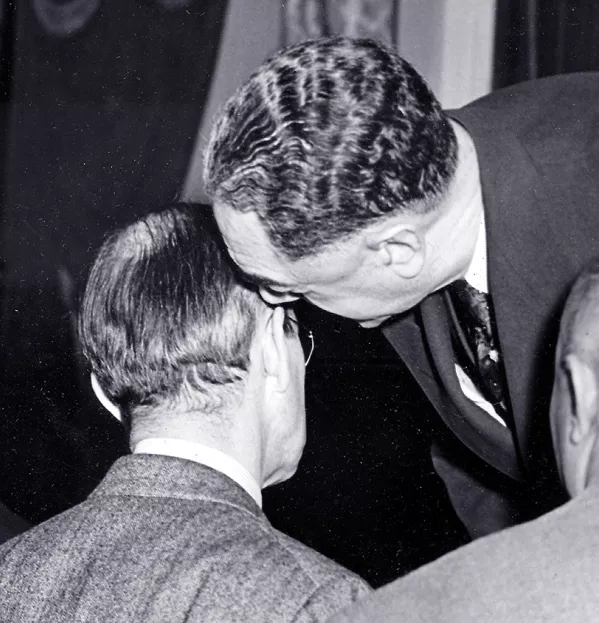Just 150 seconds to decide the fate of a school

They make decisions of fundamental importance to schools up and down the country, yet they meet in secret and give few clues about what guides their choices.
They are the eight regional schools commissioners (RSCs), each with a headteacher board (HTB) to advise them.
Now, documents obtained by Tes under freedom of information laws have helped to throw new light on how one of the most secretive parts of our schools system actually operates.
The disclosures from the government suggest that it views academy chains as competing “commercial interests” rather than school groups collaborating for the good of all pupils.
They also reveal that the headteacher boards can be expected to reach major decisions about the future of schools in as little as five minutes. One of these decisions involved a board deciding on whether it thought two primaries should be academised - effectively leaving just 150 seconds to consider each school.
‘Completely inappropriate’
A teaching union leader describes the time slots “as completely inappropriate” and says they suggest the boards are merely “rubber-stamping” the decisions of RSCs rather than properly holding them to account.
The documents in question are the reports that each HTB considered during meetings in October or November 2016, when making crucial decisions about which schools become academies and who runs them. However, the way the Department for Education released the papers will only exacerbate concerns about a lack of transparency.
Officials have blacked out key sections across hundreds of pages, often on the grounds that they included financial operations and planning of trusts which, if revealed, “would likely prejudice the commercial interests of the trusts”. In many cases, the redacted information includes the rationale behind academy proposals, risks that were identified and alternative academy sponsors that were considered.
Some of the HTB agendas reveal how much time is set aside for making decisions. At the South West region’s meeting on 3 November, just five minutes were allocated to discuss each of nine decisions recommended “for approval”. Up to 15 pages of detailed background papers accompanied each item.

One of these decisions involved proposals for two primaries to become academies and join the Reach South academy trust, effectively giving the HTB just two-and-a-half minutes to consider each school.
Another item involved deciding whether an infant school and a junior school should join an academy trust. One was already an academy, while another would have to convert.
Two more of the decisions involved applications from individual schools to become academies. Board members were also given just five minutes to make decisions about who should sponsor an academy, about changing schools’ age ranges, and to reach a conclusion on whether an academy should be allowed to physically expand. The South Central and North West London meeting on 3 November allowed an average of 10 minutes each for decisions about orders that would allow schools to become academies.
Mary Bousted, general secretary of the ATL teaching union, says: “I think what that shows is that the decision has probably been made before the meeting - it is a rubber-stamping meeting. The decision to turn a school into an academy or force it to join a multi-academy trust has huge implications for the school, the community and the parents.
“It’s a major decision about the governance, and running of the school, which will have a profound effect on the people who work there and the education of the children who go there. If these decisions are being made within a five-minute time slot, my only conclusion is that in fact what the headteacher board is doing is rubber-stamping a decision of the RSC, and the board is not holding the RSC to account in a real way. It’s completely inappropriate.”
Lack of challenge
Tes has established that there is a high degree of consensus between RSCs and the headteacher boards supposed to advise and challenge them.
According to a DfE response to a separate freedom of information request, across all eight regions “there has not been a situation where an RSC was minded to take a decision which did not accord with the majority of its HTB members’ advice”.
The released board papers reveal the type of information made available to RSCs and HTBs when making their decisions.
Documentation about issuing academy orders generally includes a “project template” giving information about the school and the proposal, and a “sponsor template”.
Unsurprisingly, Ofsted results and academic performance figure highly, and in some cases decisions have been deferred pending the release of exam data or the outcome of a recent Ofsted inspection.
Financial information considered includes the income and expenditure, liquidity and solvency of academy trusts, as well as other issues raised by a review of their accounts. HTBs are also given information about current and projected pupil numbers, whether the school has a PFI deal, deficit or viability issues.
The sponsor templates also show that many academy trusts are given a “quality grade”, although these ratings have been redacted. In the past, the DfE has refused to release lists of academy trusts’ grades or the criteria used to allocate them.
“We need [national schools commissioner] Sir David Carter to open up the system whereby decisions are being made in the name of transparency, so there can be a real sense of being accountable to parents, and parents can be reassured about decisions about their schools,” says Geoff Barton, general secretary of the Association of School and College Leaders.
But he believes it is impossible to say whether five minutes is sufficient time to make decisions about academies because “we don’t know what other discussions might have been had, by whom and where”.
Kevin Courtney, general secretary of the NUT teaching union, wants HTB meetings to be held in public.
The DfE says that work was carried out in advance of the decisions made in HTB meetings. “All decisions made by headteacher boards are subject to rigorous oversight and analysis,” a spokesperson says. “To ensure the system is open and transparent, a significant amount of information is published online. This includes records of meetings, conflicts of interest registers and criteria for all decisions made by regional schools commissioners.”
You need a Tes subscription to read this article
Subscribe now to read this article and get other subscriber-only content:
- Unlimited access to all Tes magazine content
- Exclusive subscriber-only stories
- Award-winning email newsletters
Already a subscriber? Log in
You need a subscription to read this article
Subscribe now to read this article and get other subscriber-only content, including:
- Unlimited access to all Tes magazine content
- Exclusive subscriber-only stories
- Award-winning email newsletters